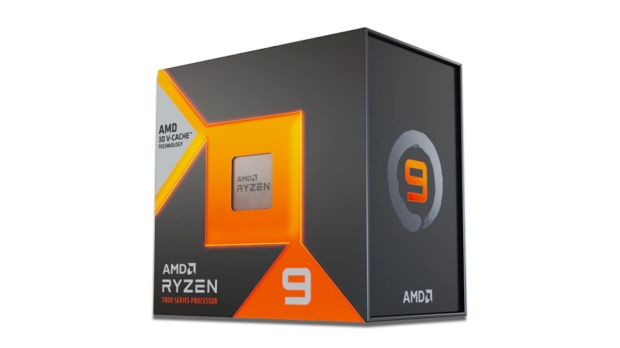AMD's Zen 5 processors are expected to debut next year, and of late, we've been hearing a lot of exciting predictions about how fast these next-gen CPUs might be - and here's another one that takes the form of an actual benchmark this time.
Yes, it's still very early days for Zen 5, but we now have a Cinebench result brought to us by well-known YouTube leaker Moore's Law is Dead (MLID).
Arm up with all the usual caveats around rumors at this point, but MLID tells us that a system with a pair of 64-core Zen 5 Turin CPUs (next-gen server processors) in two sockets (for a total of 128-cores) scored over 123,000 in Cinebench R23.
That's a pretty incredible result - we're told it beats out a Zen 4 system (Genoa, current EPYC CPUs) drafted in for comparison by around 15% - particularly when you consider two things.
Firstly, that this was achieved on air cooling - with the only faster Cinebench results currently recorded having used exotic cooling like liquid nitrogen - and secondly, remember that this is still early engineering silicon. Zen 5 has a long way to go yet in development, and will doubtless be appreciably faster than this in the end.
MLID doesn't share much pertaining to the actual benchmark result, or the Zen 5 system itself - to protect the source of this leak - but does note that the L2 and L3 cache remains the same as with Zen 4. However, the L1 cache is slightly beefier, but there aren't major differences in terms of loading up with cache for Zen 5.
MLID also notes that the base clock for the early sample Zen 5 CPU was a lowly 2.3GHz, compared to the Zen 4 system which ran at 2.43GHz.
Overall, MLID concludes that given that difference in base clocks - and the Zen 4 system having the ability to cycle between more cores in the benchmark (due to having 192-cores on tap) - we can expect at least a 20% increase in IPC (Instructions per Clock) with Zen 5. Indeed, MLID says it's likely to be a bit above 20%, but not as high as 30% as has been suggested in some other quarters.
The Zen 5 CPU was also shown reaching a 3.85GHz boost already, and that's faster than current Zen 4 (Genoa) server processors, which again underlines a previous rumor that MLID expects boost speeds to be faster with AMD's next-gen chips.
In short, not only is Zen 5 continuing to look promising in its early stages, the fact that this is a benchmark means it's a more concrete indication of potential performance levels - though we must of course take any leak with a healthy sense of caution.
Leaving Intel in the dust?
The other exciting bit to note here is that Zen 5 apparently performing speedily as it stands right now lends credence to the idea that Ryzen 8000 processors - or whatever consumer Zen 5 ends up being called - are on track for an early 2024 release. This is something MLID has claimed before, asserting that we'll get Zen 5 in the first half of next year, and most likely it'll be Q1 2024.
How does this leave Intel sitting in theory? Well, in a precarious position MLID suggests, and we'd agree. With maybe only a relatively minor Raptor Lake refresh coming this year, next-gen Arrow Lake desktop CPUs may not arrive until the middle of 2024, or possibly even later.
Suppose indeed that it does turn out to be later next year for Arrow Lake's arrival. In that case, the problem for Intel will be not only giving AMD the opportunity to get Zen 5 out there unanswered for the best part of the whole of 2023 - assuming that Q1 release rumor pans out - but that by the time Arrow Lake pitches up, Team Red will have 3D V-Cache Ryzen 8000 models out for gamers. And that could be a whole world of pain for Intel in terms of losing ground in the desktop CPU arena.


